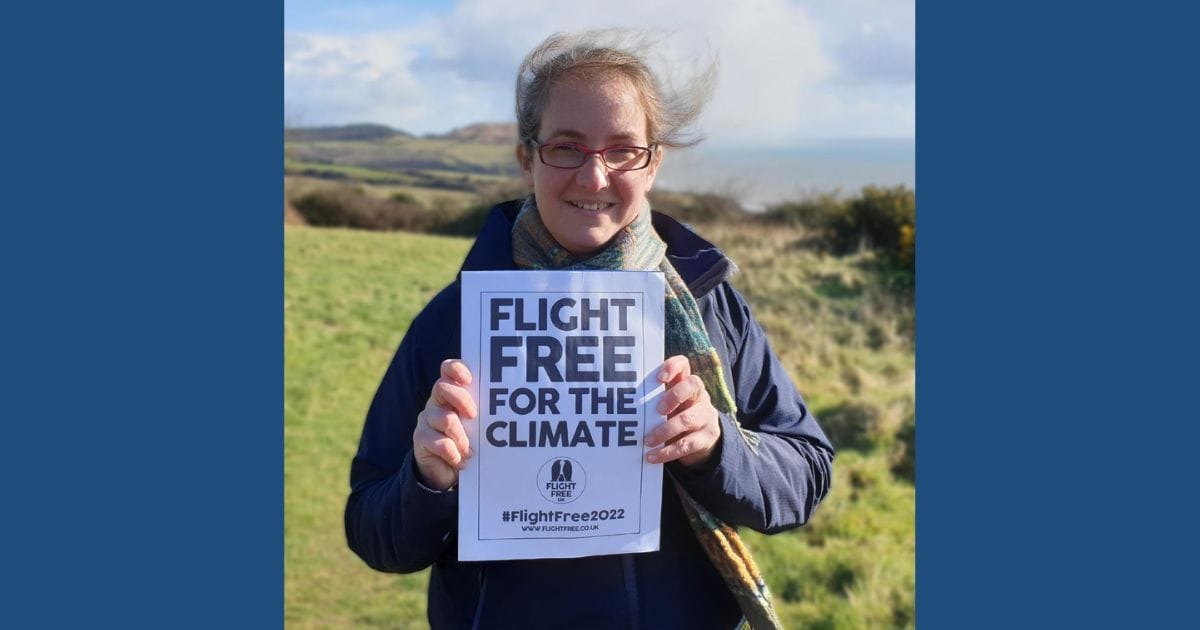There is a lot of talk about SAF from airlines and Governments keen to show their eco credentials.
But what is SAF, and is it as green as it sounds?
Sustainable Aviation Fuels, or SAFs, can be made from biomass (biofuel) or green electricity (electrofuel or e-fuel). Airlines claim that SAFs are climate friendly and can reduce CO2 emissions by 70% vs fossil fuels.
But SAFs emit the same amount of CO2 as kerosene when burned – any greenhouse gas savings come in the production stage. For example, biofuels extract carbon from the atmosphere or biosphere as they grow, so the amount of carbon absorbed can be claimed as an emissions savings. In most cases, the figure is optimistic.
SAFs emit the same amount of CO2 as kerosene when burned
What are biofuels?
Biofuels typically come from agricultural crops or waste from farms, municipal waste from cities, inedible animal fats, or used cooking oil. Using ‘virgin’ crops (i.e. not from waste) is hugely damaging: plantations of crops such as palm oil, rapeseed or soy are a leading driver of deforestation, as well as being a disaster for biodiversity. The overall effect is that using biofuel can be worse than using fossil fuel.
Crops such as palm oil are a leading driver of deforestation, as well as being a disaster for biodiversity
The problem of scale
In order to scale up, we’d need to cover the land that we currently use for food consumption in biofuel crops. Biofuel has been scaled up for road transport and it’s had a devastating effect on land in places like Malaysia, Indonesia and some countries in South America, leading not only to a decline in biodiversity but also humanitarian effects such as water shortages, rising food prices, and land conflicts.
Using “waste oil” as a solution
There are concerns with using fuels such as used cooking oil or inedible animal fat, given that this could indirectly drive additional waste – or indirectly stimulate the use of unsustainable virgin materials (palm oil etc.).
For example, the road sector currently uses more used cooking oil than we produce in the UK, leading to doubts over the origins of imported oil. In any case, it doesn’t make sense to divert this resource to the much less energy-efficient aviation sector.
Priorities for biomass use
In the hierarchy of efficient use of biomass, the priority should be feeding a growing human population and sourcing materials for shelter and infrastructure. Next comes decarbonising the grid, domestic heating, and for negative emissions.
Transport comes at the bottom of the heap. We shouldn’t really be using biofuels for transport at all, but if we must use them, we should be using them for ground transport – a more efficient use of limited resources with benefits for a wider proportion of society.
In the context of a biodiversity crisis, land crisis and climate crisis, it is a global injustice to use biofuels so the rich can keep on flying.
If we must use biofuels for transport, we should be using them for ground transport
Proportion of SAF to kerosene
Even when airlines talk about flights fuelled by SAF, it’s unlikely that there won't be any kerosene involved. Aviation biofuel scale-up has been promised by the industry for more than a decade but this has not materialised. Targets have been routinely missed by significant margins, and then ambition ratcheted-down across successive years. There was a target for 25% by 2020, but SAF use is currently at less than 0.01%.
Aviation biofuel scale-up has been promised by the industry for more than a decade but this has not materialised
It’s been estimated that there are only sufficient resources to support approximately 5.5% of projected EU jet fuel demand in 2030 – that’s without taking into account the political or economic barriers to alternative jet fuel production, which are significant.
Cost as a barrier
Aviation biofuels, if scaled, will still cost at least 2-3 times the current cost of untaxed fossil fuel kerosene. The production costs may be “twice the cost of petroleum-based jet fuel production, while other conversion processes cost as much as eight times the price of petroleum fuel.”
E-fuels
On paper, these give a much better solution than biofuels. They are made from water and air which are abundant resources, and can potentially be produced using sun and wind energy alone. So if production and combustion is low-carbon, what’s the problem?
Creating liquid hydrocarbons is very energy intensive. This brings us back to the hierarchy of energy use – we should be prioritising the use of renewable energy in powering our homes and our road transport before we start to power aviation.
It would take 3-4 times the current global renewable energy generation to produce synthetic e-fuels for aviation on current consumption trends.
We should be prioritising the use of renewable energy in powering our homes before we start to power aviation
Progress in creating e-fuels is even slower than biofuel production, with 2030 as the first viable date for blending e-fuels with kerosene, and meaningful scale-up several decades beyond that. There will be a significant cost, too, particularly for long-haul aviation, which will do little to incentivise development. The industry needs to be preparing for this.
Non-CO2 emissions
Whether it’s biofuels or e-fuels, SAFs don’t address aviation’s non-CO2 emissions such as NOx and contrail cirrus, which have a significant global warming effect and will not be fully eradicated by the use of alternative fuels.
SAFs don’t address aviation’s non-CO2 emissions such as NOx and contrail cirrus
Perhaps SAFs shouldn’t be called ‘sustainable’ at all. ‘Sustainable’ implies that we can continue to use large quantities of it without incurring any environmental or societal impacts. But all SAF pathways carry substantial risk of exacerbating environmental and social crises – they require intensive use of limited global resources, during a period in human history when we are battling to decarbonise our societies.
Fundamentally, SAF use is a distraction from policies that would lead to a reduction in fuel use in the aviation industry, and indeed other transport industries. The climate crisis requires radical solutions and for us to think beyond our current habits and lifestyles.
There might be a place for SAF, but it must go hand in hand with an overall reduction in fuel consumption.
As ever, the most reliable way to reduce emissions from aviation is to fly less.
Finlay Asher is an ex aerospace engineer and co-founder of Safe Landing, a group of workers from within the aviation industry who raise awareness of the climate reality of aviation.




